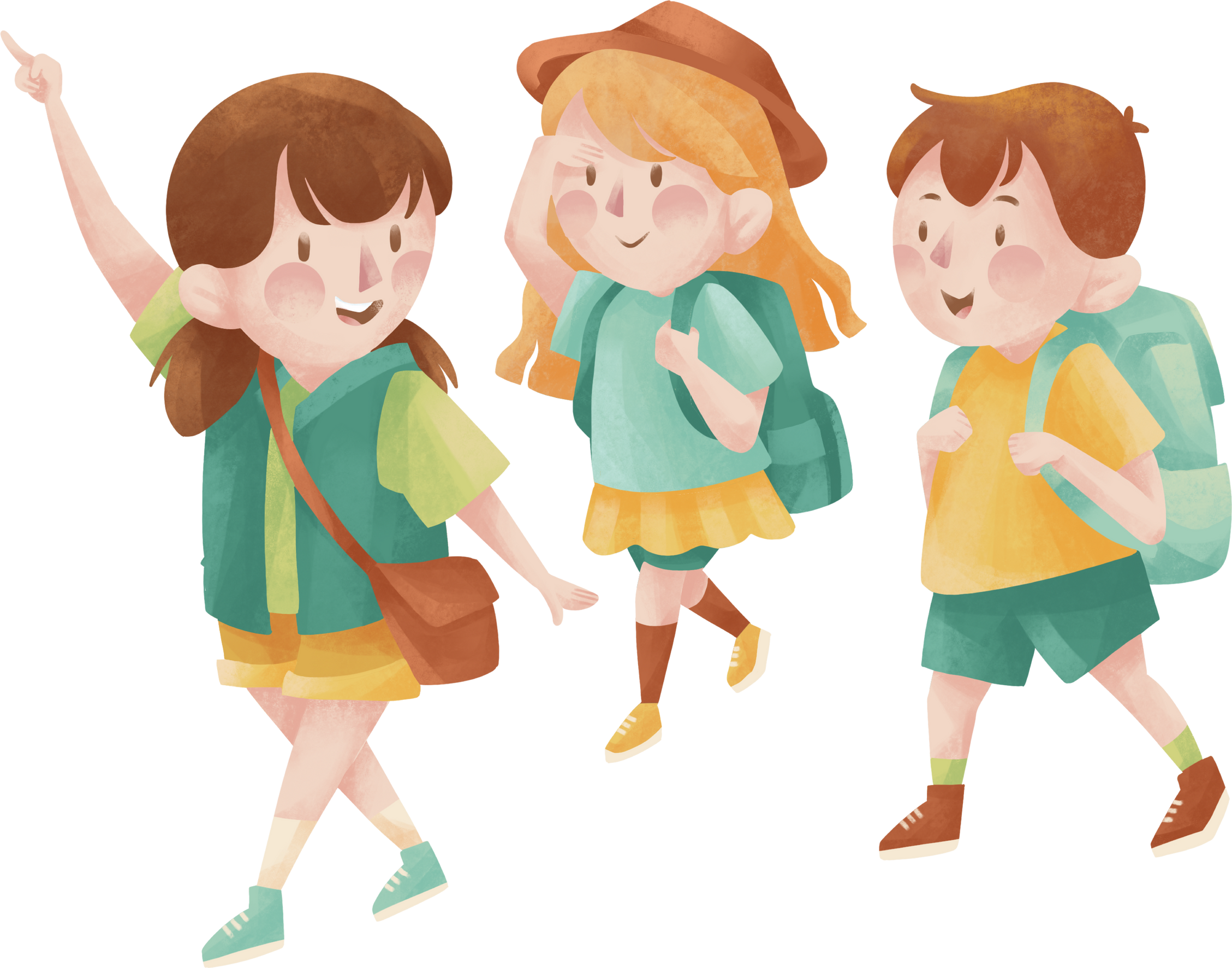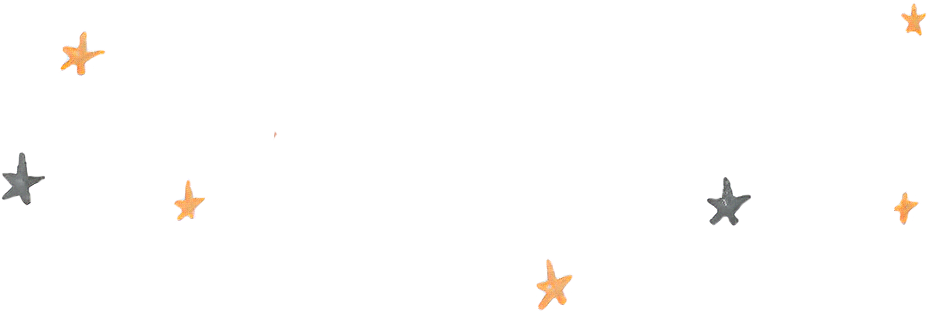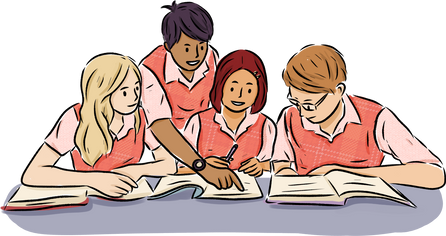Preschool
Unleashed
Informative - funny - OMG moments
What is this?
Visit us here for all the things preschool.
- Sometimes it will be informational research based on a topic.
- Sometimes it will be funny anecdotes.
- Sometimes it will be just unleashed!
Jenny Gleason
- I am a former preschool teacher, & center director.
- I teach undergraduate classes..
- I hold a Masters Degree in Early Childhood Education.
- I recently started my Doctoral program & this blog is part of it.
Alex Green
- Current Preschool Teacher in a public school
- Former Admin and Infant Toddler Teacher
- Bachelor's Degree in Early Childhood Education
- All around research nerd and enjoyer of all things early childhood.
She has completely Left me for the time being.. I will get her back!
9/28/2024
This has been an exhausting week.
It is Wednesday.
2 things keeping me moving today
1- this week ends with visit to my daughter
2- random memories
One of the classes I am teaching has a do a teaching philosophy assignment. I remember doing mine for my Master’s. First semester back in school after 20 years. I thought I was crazy. But doing that assignment really cemented in my brain why we do this. I don’t remember the exact words, I remember 1 picture that was with it, sweet 3year old Cohen. But most of all, I was reminded of how I felt. How I wanted to be a “crusader” for children. I think there have been times I have failed at that, times I have rocked the house at that. But what is important, I am still trying and more children will be affected by things I have said and done through all of the students and people I share with each day.
August 14, 2024
Class Agenda
School here is just starting.
LOVED
LEARN
SAFE
Good Morning!
I no longer have any first day of school anxiety to participate in really. I guess as an adjunct I do a little but not the same. I am hoping all those little ones are feeling safe and loved where ever they are. If you are a teacher - hear me SAFE & LOVED. This is the key to the rest of your year. Start them off the year with good vibes and warm fuzzies.
This is my Brain
I really should fineish something
What time is it?
Brilliant
idea
Creative
idea
I should eat something
OOH pinterst!
Simple
idea
Great
idea
Its fun to stay at the YMCA.... where is the music coming from?
Is it bed time yet?
Cool
idea
Awesome
idea
This is all I have got today... heaven help me!


This is an assignment for one of my doctoral classes.

Article Summary
Sultonovna, M. Z., & Sanjarovna, X. S. (2024). Facilitating the development of national cultural awareness in preschool education: Strategies and Approaches. Uxbek Scholar Journal, 27, www.uzbekscholar.com.
Sultonovna and Sanjarovna (2024) begin their studies looking into children during Erikson’s psychosocial stage of initiative versus guilt, when they are exploring their surroundings and developing their sense of autonomy. During this time, children begin to have a sense their cultural identity. It is important in this time that they see themselves represented in their classrooms. This article showcases four key-ways to increase your knowledge about children in your classroom, while teaching them about different cultures in the world.
Preschool teachers are encouraged to facilitate a range of national cultural awareness in their settings. Literature and storytelling are a keyway for children to learn about a realm of cultures. Storytelling can create meaningful connections between teacher and child as well as teaching all the children about a specific culture.


Add a littleCultural celebrations for holidays and festivals can be incorporated into the classroom. Allowing children and their families to share information about these events will bring them into the classroom. The children will develop a sense of belonging In their culture but also their class as your incorporate both items into the classroom. Sharing this with others will bring joy to the child.
Allowing children to participate in intercultural experiences such as classroom visitors and cultural field trips boosts their understanding of different cultures. This creates cultural empathy within the children. Children can learn from members of specific cultures cultures, ask questions and grow their social empathy. By thoughtful observation the teacher can learn about their students though these observations.
The final suggestion given in this article is family and community engagement. Inviting the families into the classroom can give teachers a lot of information about the child. Asking the families to share about their cultures and traditions allows others to learn about their culture and connect with them. For their child, it allows them to feel pride in their family roots as others learn and enjoy the stories.

his article suggests ideas for better inclusion of cultural experiences in the preschool classroom. The cultural identity of the child is important so learning more about the child’s culture is important. As a teacher, we must incorporate cultural learning. This will create cultural empathy within the class for all others. As the teacher, inviting the families to come and share their customs and traditions is a key strategy in getting to know the child and family. This brings the family into the classroom, and has them sharing information about them with you.
This information has made me think about how I could incorporate this into my Emergent Literacy class I teach. I am wondering if I can include an activity that would connect children, families and cultural identity.

Perhaps requiring my undergraduate students to find a book to share that is representative of a different culture and how they could tie that into a classroom activity if a child from that culture is in their class. I teach for a university in New Mexico and my students work with many Spanish speaking students that have a Mexican heritage. In addition, there is American Indian tribe nearby and some students work with them as well. So, they are deep in different cultures already.



One source I would like to read to extend my learning: I couldn’t decide between, so I have 2.
Luo, S., & Honomichl, R. D. (2014). Cultural diversity and children's literature: Strategies and resources for the elementary classroom. The Reading Teacher, 67(6), 463-472.
Lin, A. M. Y., & Man, A. P. (2019). Promoting children’s intercultural understanding through storytelling. Early Child Development and Care, 189(1), 98-108.





happy
hour
Coffee
Please
OR
This blog post is part of an assignment for my doctoral degree. It involves a recent dissertation that includes engaging families in the classroom community.
Title of Dissertation: Identifying and Overcoming Perceived Barriers to Family Engagement in Early Childhood Education
Purpose: To understand the perceptions about family involvement/engagement and barriers in early childhood education from administrators, teachers and parents/caregivers.
Population/participants: Purposeful sampling was planned to be used to choose, instead the COVID-19 pandemic chose the people who were willing to assist in the project. This included four administrators, three teachers and three parent/caregivers.

BLog post for learning Experiences in supportive Environments
Methodology:This is a case study using the narrative inquiry approach, with some adjustments to the planned methods along the way due to the pandemic.
Data Sources: Semi-structured interviews, secondary semi- structured interviews were used to collect data. Observations were done. Literature review was done of relevant academic research.
Conclusions: Participants spoke of the barriers they see in family engagement. Parents are reporting struggles to attend events due to scheduling, too many other events, lack of energy. Recording informational sessions for parents to watch at their leisure could potentially assist the parents in gaining child development knowledge on how to better engage. The author talks of state licensing rules of not allowing a child not enrolled in the center to be on site while it is open as a barrier. (As this was written in my state, and I am quite versed in licensing regulations, I believe the rule applies only that they cannot be left without the parent. So, attending a class party with a sibling with them does not fit this as the author implies.) Teachers reported their perception was that the parents did not respect them as professionals, so they did not come to events. The author’s suggestion was to bring the field of early childhood education to the forefront as a profession, not babysitters.
BLog post for learning Experiences in supportive Environments
Resources & their relevance:
Hill, N., & Taylor, L. (2004). Parental school involvement and children's academic achievement: pragmatics and issues. Current Directions in Psychological Science, 13(4), 161-164. Retrieved from http://www.jstor.org.proxy.bsu.edu/stable/20182940
This article describes scenarios of culture, socio-economic status, mental health, and relates the decision that the parent is likely to make. The connection between teacher and parent is likely to make the child’s educational experience more meaningful as long as it is a positive relationship. Parental involvement is shown to affect achievement. The article also discussed several unfortunate biases that could take place. This is important as it suggests creating the parental bond needs to happen before we ask for assistance with events or child activities.
Hindman, A. H., Miller, A. L., Froyen, L. C., & Skibbe, L. E. (2012). A portrait of family involvement during Head Start: Nature, extent, and predictors. Early Childhood Research Quarterly, 27(4), 654-667. doi:10.1016/j.ecresq.2011.11.002
Family involvement is a key component of the Head Start model. This article looked at the parental role in home learning, community learning, and in school learning. The authors find that Head Start center typically create an environment that is inviting to all. Unfortunately, the decision on volunteering and being involved in school is not influenced by the center’s activities. Study finds that many parents are interested in coming to events that concern their child, for example conferences. If parents were interested in coming, they made the effort to come, if they were not sure the obstacles that could hinder them were there, schedule conflicts, transportation, childcare. These obstacles could keep them from coming if they didn’t really want to became good excuses to not attend. This article was likely chosen by the author for a discussion on involvement.
DeLoatche, K. J., Bradley-Klug, K. L., Ogg, J., Kromrey, J. D., & Sundman-Wheat, A. N. (2015). Increasing parent involvement among head start families: A randomized control group study. Early Childhood Education Journal, 43(4), 271-279. doi:10.1007/s10643- 014-0660-7
This article was chosen for its purpose statement. of the current study was to estimate the impact of a parent-directed early literacy intervention. Parents who were involved in home-based literacy activities were found to have significantly impacted their child’s literacy development. The article used Head Start families and has further justified for them the use of their monthly Home learning activities.


BLog post for learning Experiences in supportive Environments
Reflection on DAP and meaningful learning in supportive environments:
Developmentally appropriate practices and meaningful learning in supportive learning environments fit right together with family involvement. Parental involvement fosters strong, positive relationships with parents, teachers and the children. Children may be able to connect more closely with their teacher when they see the parent is comfortable with the teacher as well. Parents and teachers who work together are able to share resources and strategies to support the child’s learning, ensuring that methodology used is the same. Teachers who are close with parents are able to share developmentally appropriate practices with the parents. Often the parents have unrealistic expectations, but through bonds with teachers are able to better understand where their child should be developmentally.
My further work on fostering supportive learning environments:
I have several routes that I can work with to try to increase parental engagement.
1- As a site coordinator, I am currently working on how to increase the proper usage of our Home Learning Calendars. Our teachers do not use them as required, and the parents do not understand them. This is on my plate for a summer project to work on before we restart this fall.
2- As an adjunct professor, I am thinking that my Emergent Literacy class will have an assignment about engaging parents in reading outside of class with their child. My Integrated Curriculum class may expand the one they have too. I need to get my classes planned and going for the fall so many things to add.
References
Haisley, S. (2020). Identifying and Overcoming Perceived Barriers to Family Engagement in Early Childhood Education. Ball State University ProQuest Dissertations & Theses, 28257129.
June 16, 2024
This blog post is part of an assignment for my doctoral degree. It involves a recent dissertation that includes developmentally appropriate classroom learning environments and positive classroom climates.
Title of Dissertation: Perceptions of early childhood perceptions of early childhood educators on mindfulness and social emotional curricula: A qualitative case study
Problem: Growing need to combat increased aggressive behavior in early childhood students.
Purpose: Examine the perceptions of early childhood educators concerning
the implementation of mindfulness practices and/or social emotional
curricula and the impacts on positive social-emotional behaviors amongst
early childhood students.
BLog post for learning Experiences in supportive Environments
Population/participants: From a population of three online Facebook teacher groups with 75,000 members, a questionnaire was given to 50 to determine their eligibility to participate; 12 educators were chosen.
Methodology: Data collected from the questionnaires, and interviews. Data analyzed using inductive reasoning. Data was coded, themes were matched and conclusions were drawn
Data Sources: Questionnaires, semi-structured interviews and secondary semi- structured interviews were used to collect data. Literature review was done of relevant academic research.
Conclusions: Participants found that all of the declared mindfulness techniques or social emotional program used children were able to resolve conflicts without intervention, using their learned social skills. Social emotional learning programs have created a positive learning environment. Direct instruction of the curriculum, with repeated opportunities for practice benefited the students. Mindfulness practices were found to decrease bullying and other aggressive behaviors. Recommendations were to include explicit social emotional curricula and mindfulness practices to decrease challenging behaviors.
BLog post for learning Experiences in supportive Environments
Resources & their relevance:
Dan, A. (2016). Supporting and developing self-regulatory behaviours in early childhood in young children with high levels of impulsive behaviour. Contemporary Issues in Education Research, 9(4).
Dan researched impulsive behavior and how teachers handled it. Curricula additions were made; teachers implemented changes to their day. Some of the teaching strategies included scaffolding, individualized instruction, and small groups; Social emotional teaching strategies; building supportive environments and relationships. This was relevant to the dissertation because it supported the idea that social emotional teaching, positive relationship building, and mindfulness strategies create a positive change.
DeMeulenaere, M. (2015). Promoting social and emotional learning in preschool. Dimensions of
Early Childhood, 43(1).
DeMeulanaere researched the creation of a positive physical environment, and classroom set up, and then she looked at the child’s relationship building. This is relevant to the dissertation as it discusses the classroom physical environment and the relationships made using the lens of social emotional skill building.
Hoffman, D.H. (2009). Reflecting on social emotional learning: A critical perspective of trends in the United States. Review of Educational Research, 79(2), 533-556.
Hoffman looks at the research on positive social emotional learning through the lens of changing the social contexts. This study is relevant to the dissertation as its results imply that one should not just focus on the child acting our but the group as a whole. Using social emotional learning from the start, instead of Implementing techniques as they are needed to support an individual child’s situation.
BLog post for learning Experiences in supportive Environments
Reflection on DAP and meaningful learning in supportive environments:
Developmentally appropriate practices include teaching social emotional skills. These skills will assist the teacher in creating a classroom based on group learning, and safety. Teachers should be encouraged to implement a social emotional curriculum with fidelity. The teachers must be trained in this and feel confident to implement. This all falls under a supportive environment based on developmentally appropriate practices.

BLog post for learning Experiences in supportive Environments
My further work on fostering supportive learning environments:
I have several routes that I can work with to create a more supportive learning environment for the children in care.
1- As a site coordinator, instructional coach and challenging behaviors specialist at my place of full-time employment, I will use this information to help coach my teachers to create environments
that are supportive of the children, are developmentally appropriate, and guide them as they
need to address children who require extra assistance in learning social emotional skills.
2- As an adjunct professor, I will continue to incorporate in my classes information on social emotional learning and best use of the environment in creating
positive classroom cultures.
3- As a part of our local affiliate for NAEYC, I will use my influence and knowledge to share outside of my immediate circle the need for further training and implementation of on social emotional skills and how to better align our skills with developmentally appropriate practices.
4- As a Walden University agent of change, I will continue my studies in early childhood, specifically in challenging behaviors and teacher training. I will use my studies to further my dreams of seeing more classrooms with less extreme challenging behaviors in our organization and beyond.


MAY 27, 2024
I MET A GOAL! HA! yeah
Ok, it was only to finish the book I started at Christmas, but I did it. It seemed like such a stretch for a while there. I was going to start another, instead I chilled. One week with no homework or grading- bliss. I love what I do but man it was nice. What did I accomplish - uh - well the same load of laundry is in the washer. I am going to go wash it again...
New School session starts today - If you see me crying - look away.
Learning Experiences in Supportive environments - sounds good
Class#2... Quantitative Reasoning
It has embedding into it extra learning supports for the statistics. There is extra learning homework.
Maybe I should have said - you WON’T see me-
I will be doing homework.


May 25, 2024

I survived the semester. I taught 2 classes, both new to me. Took 2 classes, both Research classes - Two A’s. And I am standing still. Maybe a little wobbly but I am.
This semester my health sucked to say the least. Several ER visits. NON STOP DR visits, more meds. Not sure what is worse right now, the never ending migraine, the swelling of my legs, the pain in my knees or just the pain all over - But I am alive. I have the best hubs who deals with it all and takes care of me.



Have you ever read something so dumb you wrote?
OMG!
Now read what I wrote on Jan 2
And if I ever say something like that again.... hurt me!

March 28,2024
I made it out!
I am out. The new teacher is in, and I am back to . . . well I don’t even remember how to do my real job anymore. Ugh.
I started teaching at another school too. Now I work full time, and teach 2 nights a week. Who had the bright idea to try to get a doctoral degree? I had a major fibromyaglia flair yesterday and turned in the worst assignment I think ever. I am going to cringe when she grades that. . . and I already have a B in that class. I am not ok with that. Have to figure out how to do research stuff.
Hope all out in the world are good. I am losing my mind. Back to homework and trying to feel ok.
March 14, 2024, I think - somewhere in Indiana
The days all merge on...
2024 has been a bit crazy. Preschoolers are cra-cra!
I have been tossed back in a room for a month or so due to a teacher’s departure. Add my regular stuff I am trying to do at work, Homework, teaching a couple of classes, and pretending I do stuff at home - thank god for my hubs, and the never ending assault on my health - I am exhausted. I know I had interesting things to share here, but damn if I can remember anything. My thoughts for anyone who finds this. Take care of yourself!
And I still don’t have real goals for 2024!
1- Goal for work: Don’t get eaten by any preschoolers
2- Goal for learning: Figure out how to write my problem statement
3- Goal for physical well-being: Find answers so I can not go to the dr - I think my entire salary this year will be to pay for co pays at this point
4- Goal for Mental well being: Hide in closet so no one can find me
5-Goal for reading (for fun): Finish the book I started at Christmas break by Christmas!
January 2, 2024
It is 2024. Today I helped a teacher organize and reset her room for the children’s return tomorrow. Seems like it hasn’t been that long, since I did this for my classroom. I miss it, but also, I’m good. Administration and helping more people is my goal. But hey - if you need a sub! I would love to.
I am trying to set some goals for this year for myself. Why is this so hard?
-Jenny
Goals for 2024
1- Goal for work:
2- Goal for learning:
3- Goal for physical well-being:
4- Goal for Mental well being:
5-Goal for reading (for fun):
Steps to help the mom to be:
- Get her to quit smoking and drinking.
Early use of those substances can cause many complications. The child could have low birth weight, attention issues, later behavioral issues, such as oppositional defiance, or penchant for trying illicit substances as a teen. Children exposed to alcohol prenatally are likely to have attention deficits, cognitive delays, problems with verbal fluency, executive function, and motor skills (Ross, et al, 2014).
December 31, 2023
Early Prenatal Care
Prenatal care is a critical part of creating a healthy child.
Doctor visits need to start as soon as you know you are pregnant. Doctors are able to monitor for signs of distress or complications. Ensuring the health and wellness of both the child and the mother is important.
- Minimize stress
According to Graignic-Philippe et al (2018), “stress is a state of internal tension provoked by a change” or “threat, real or implied.”
Stress can create low birth weight, memory issues, difficulty in bonding and will create the stage for the fetus’ health through adulthood (Music, 2017).
- Ensure she is seeing a Doctor
Early prenatal care will allow doctors to monitor both the health of the baby and the mom.
- Find or create a support group
Pregnancy is hard. Kids are hard. It is all made easier when you have people doing the same things with you.
- Provide information on the WIC program and proper Nutrition
The Women Infants & Children program provides federal grants to states for supplemental foods, health care referrals, and nutrition education for low-income pregnant, breastfeeding, and non-breastfeeding postpartum women, and to infants and children up to age 5 who are found to be at nutritional risk.
Why is this important to us as
ECE professionals?
- As ECE professionals prenatal care is important because we may have these children in our care.
- These moms may already be part of our centers.
- They may need guidance from people who know child care basics.
- We know others in the same position. We can help create connections for them.
What to do:
I call on all of you to help & be a support for moms to be. What can be done within your center?
Create mom’s groups within your center? Or find ones you can share with them.
Have available to families OBGYN & pediatric doctors in the area?
Could you create a information area in your center and put info on prenatal care in it?
WIC: fns.usda.gov.us
Find a doctor: doctor.webmd.com
Quit Smoking: quitassist.com/quit/smoking
Drug & Alcohol treatment: Samhsa.gov/find-help
References
Alexander, G. & Kotelchuck, M. (2001). Assessing the role & effectiveness of prenatal care: History, challenges, & directions for future research. Public Health Reports, 116, 306-316.
Graignic-Philippe, R., Dayan, J., Chokron, S., Jacquet, A-Y., & Tordjman, S. (2014). Effects of prenatal stress on fetal & child development: A critical literature review. Neuroscience & Biobehavorial Reviews, 43, 137-162.
Kocevska, D., Verhoeff, M.E., Meinderts, S., Jaddoe, V., Verhulst, F., Roza, S., Luijk, M.P., & Tiemeier, H. (2018). Pediatric Research, 83(4), 760-766.
Music, G. (2017). Nurturing natures: Attachment and children’s emotional, sociocultural, and brain development (2nd ed.). Psychology Press.
Ross, E.J., Graham, D.L., Money, K.M. & Stanwood, G.D. (2014). Developmental consequences of fetal exposure to drugs: what we know & what we still must learn. Neuropsychopharmacology, 40, 61-87.
Tanpradit, K., & Kaewkiattikun, K. (2020). The effect of perceived stress during pregnancy on preterm birth. International Journal of Women's Health, 12, 287-293.